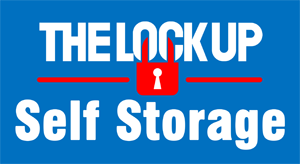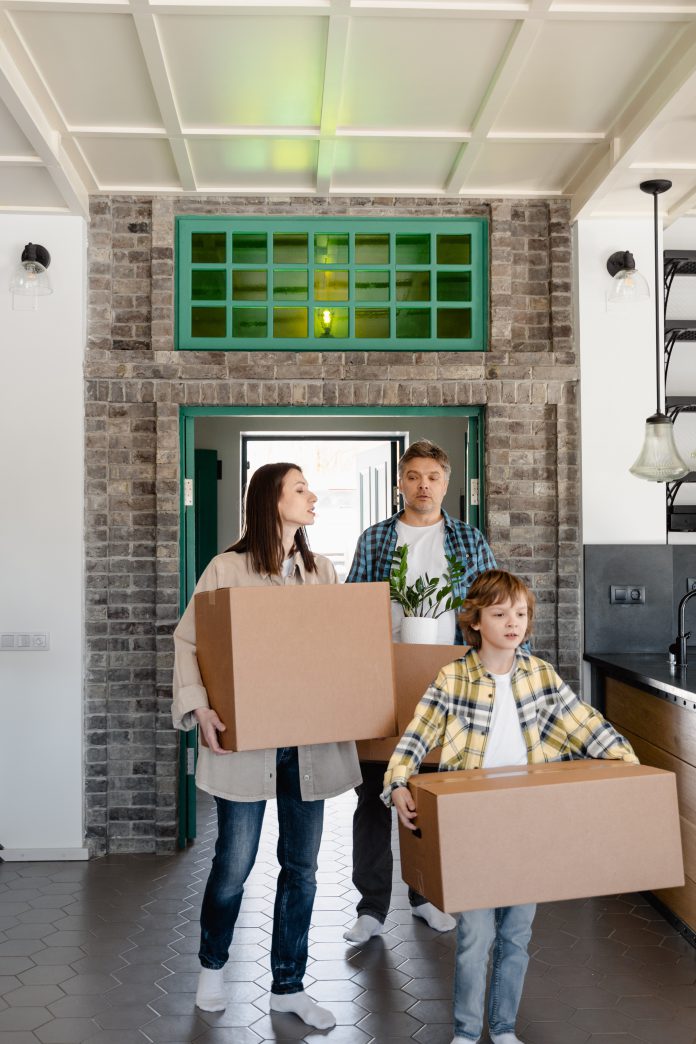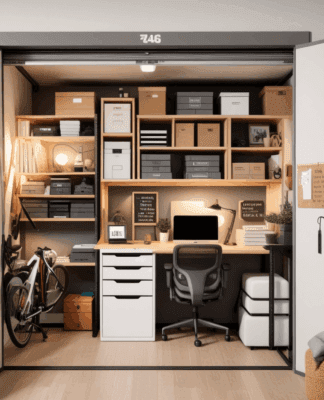Almost everyone has moved to a new house, city, or state at least once in their life. You might move because of a new job, the desire for a change of scenery, or because your family is growing. Regardless of the reason, the process is stressful and brings about a lot of anxiety for everyone involved. It takes a large toll on your physical and mental wellbeing, even if it’s only temporary. However, when you try to move with kids, this process becomes even more difficult. Not only will you need to properly prepare them for the move itself, but you’ll also need to pay special attention to helping them cope with the stress and anxiety of stepping out of their comfort zone. To minimize unnecessary anxiety, here’s more information on how to take the stress out of moving with kids.
How to Prepare Children for a Move
Moving can have a big impact on a child and if done without the proper preparation, can affect their mental health later in life. As soon as you decide that you’ll be relocating, start thinking of ways you can make things easier on your children. This will include using the proper communication, framing the move in a certain way, and fostering an environment that allows children to express themselves and be heard.
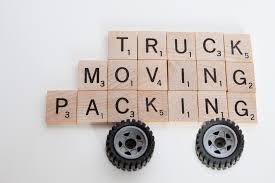
Communicate Effectively
Telling your children that you’re going to be moving as soon as possible is a good way to ease into the transition. However, the timing isn’t the only important factor in communication. How you tell your children about the move will shape their views on it in the moment and in the future, so try to be strategic. For example, focus on the exciting aspects of the move—things that will happen in the future—and avoid talking too much about leaving things behind. These topics will eventually need to be covered but framing the move in a negative light isn’t how you want your children to begin processing the change.
Visit Your New Town
Another good way to get your children excited about the future is to take a trip to your new home. If it’s in a different town, take a weekend off and go there with your family. Spend time exploring some of the great things your new town has to offer to spark optimism and anticipation. When you highlight all of the positive parts of the move, your child won’t get stuck on the negative as much.
Be Open and Honest
During the attempt to frame your move in a positive light, don’t neglect your child’s questions or concerns. When they ask you something about the move, try to be open and honest about the answer. Eventually they’ll realize that they have to leave their friends, school, and the room they’ve grown accustomed to behind. Help them compartmentalize these ideas by talking through their emotions. This can boost their confidence that they’ll make new friends and attend a great school in their new town.
Pack Strategically
Packing for a move can seem like a whirlwind of activity. Rather than simply opening boxes and throwing things inside, try to be strategic. This is especially important in regard to how and when you pack your children’s belongings. To avoid temper tantrums or emotional outbursts, try to pack your child’s room last. This will reduce the impact of the move on their day-to-day lives until it’s absolutely essential.
Surviving Moving Day as a Family
Depending on the age of your children, moving day can become a bit chaotic. Moving with toddlers and adolescent children requires a little work to ensure that things go smoothly, so consider some of these tips to survive the big day.
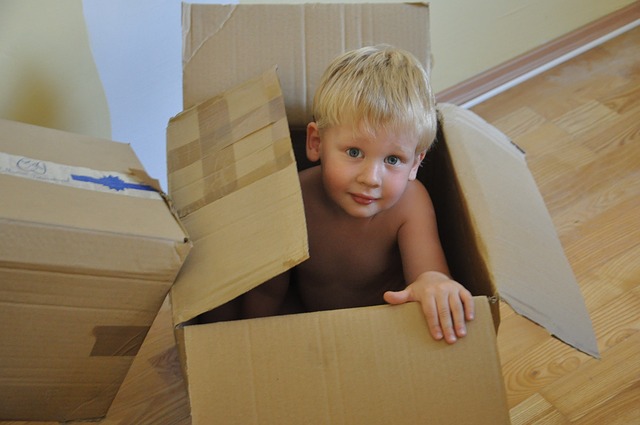
Try to Schedule Moving During the Summer
Moving during the summer offers two distinct benefits for families. For one, school-age children won’t need to disrupt their education to move to another location. This helps reduce potential learning gaps and can make the transition to a new school less intimidating. The other benefit of moving during the summer is the weather and length of the day. You’ll be less stressed, and your children will be able to hang out outside while the movers are doing their job. If this isn’t a feasible option, try moving during a winter or spring break to coincide with school calendars and holidays.
Stick to Routines
Moving can cause a lot of daily disruptions to your routine. While adults are accustomed to veering from their schedules, unpredictability for children can cause emotional distress. At the very least, stick to your children’s routines during a move. This includes waking up at the same time each day, having breakfast, nap time, bath time, and sticking to bedtime schedules. Depending on the age of your child, this can have a drastic difference in their attitude and mindset during the day.
Prepare a Day Bag
When it’s time to pack your children’s belongings, work with them to put together a day bag that they can access throughout the entire move. This should include any comfort items that they need—blankets, toys, pacifiers—coloring books, games, activities, a pillow, their clothes, and some toiletries. Having them help can make it seem like they’re getting ready for an exciting adventure. Then, they’ll have everything they need throughout the move to stay calm, distracted, and comfortable.
Give Your Children a Task
While it’s not recommended to have your children help you move boxes, giving them a task will make them feel invested and important. It doesn’t have to be a productive task but keeping them active will keep them distracted. You can have them decorate the moving boxes, pack their own bag, or even play with the household pet. Older children can perform more complex tasks, so don’t be afraid to get them involved.
Try to Stay Calm
The most important part of keeping moving day stress-free for your children, and your family, is to stay calm. Kids mimic what they see, so if both of their parents start freaking out, they’re going to do the same. Instead, if something goes wrong, try to remain calm, be patient, and if you need to express some frustration, go into another room or take a walk. This helps avoid mirroring in children, which is only going to cause more stress on the big day. If you’re overwhelmed, try asking a friend or family member to come over and help keep your kids distracted. The more prepared you are, the smoother this day will go.
Helping Kids Adjust After a Move
Children don’t always react to change in a positive light, especially when they move away from their friends, school, and out of their childhood room. Once you arrive at your new home, try to do what you can to help your children adjust. Prioritize setting up their new room before you unpack the rest of the house, so they’re surrounded by all their belongings. This can help emit a sense of comfort during the transition. Then, slowly begin unpacking the rest of your belongings so that you have the opportunity to spend time with your child, explore your new neighborhood, and show them some extra attention. It’s also important that you continue to keep their routine in place, even if you get a little busy. Mealtimes and bedtimes shouldn’t change, as this can help communicate things aren’t going to be vastly different in a new home. If you notice any signs of distress in your child, consider talking to a professional to better react to their emotions and provide them with what they need.
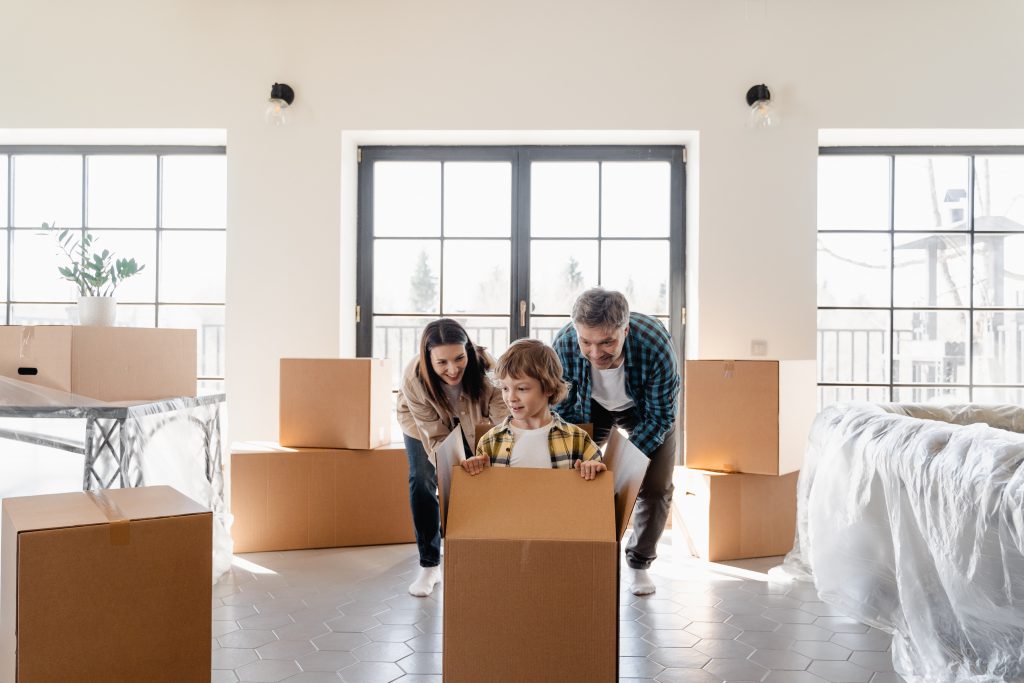
Moving to a new home or city can be exciting but try to be cognizant of how it impacts your children. To help you during the transition, consider using short-term self-storage at The Lock Up Self Storage. With a range of sizes, our storage units provide you with the extra space you need while unpacking and prioritizing family bonding. If you find that your new home lacks essential storage, flexible leasing allows you to store excess items in a safe, reliable building. At The Lock Up, all of our self-storage units are temperature controlled and protected by security features like perimeter alarms, CCTV, and unique, individual access codes. To find a facility near you, contact The Lock Up today at 1-866-327-LOCK or find a unit online today

